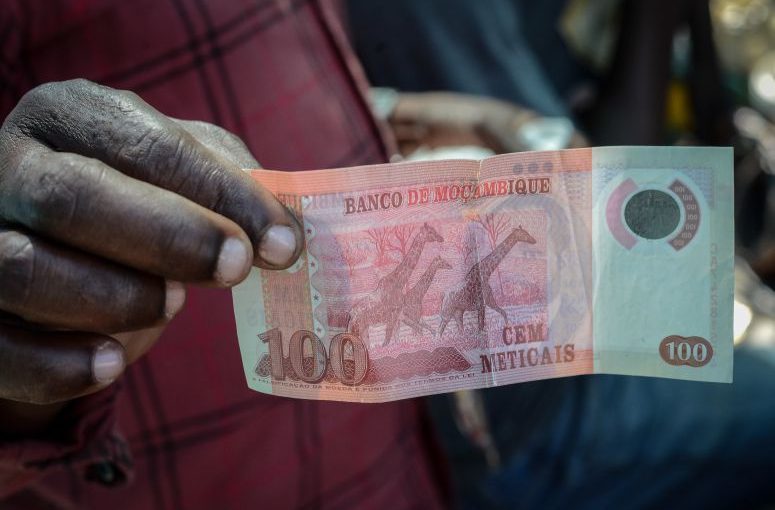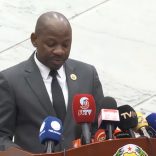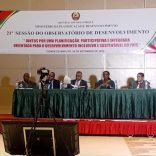Mozambique: Government approves state budget for 2026
Mozambique: Government promises IMF to cut bonus salary

FILE - For illustration purposes only. [File photo: Lusa]
Mozambique’s government has committed to the International Monetary Fund (IMF) to pay civil servants a third of the 13th month this year and half by 2028, according to a document Lusa saw on Thursday.
“We have approved a medium-term action plan to help reduce the wage bill to 10% of Gross Domestic Product (GDP),” reads a letter sent by the Mozambican authorities to the IMF managing director as part of the fourth review of the Extended Credit Facility (ECF) programme, concluded this month.
The letter addressed to Kristalina Georgieva, dated 21 June and signed by the minister of economy and finance, Max Tonela, and the Governor of the Bank of Mozambique, Rogério Zandamela, states that this plan “includes political measures”.
In particular, “limits on hiring, a freeze on nominal salaries and promotions, allocating a third [of the basic salary] of the 13th month in 2024 and half of the 13th month in 2025-28”, as well as “reforms to the management of public finances”.
In December, Mozambique’s president, Filipe Nyusi, announced in parliament that he would pay 30% of that year’s 13th-month salary to civil servants, justifying the decision with the “complex situation that the economy is going through”.
“Despite the immense financial difficulties we are facing, my government has decided to allocate, for 2023, the payment of the 13th salary, which corresponds to 30% of the basic salary, between January and February [then expected to be paid],” declared Filipe Nyusi, during the annual State of the Nation address in parliament.
The IMF will immediately disburse a further $60 million (€55.5 million) in support to Mozambique under the country’s assistance programme, the institution announced on 9 July.
In a statement, the IMF said that the government had concluded the regular consultation process with Mozambique for 2024 and the fourth review of the 36-month ECF agreement, which “allows for an immediate disbursement” equivalent to $60.03 million “usable for budget support”, bringing the total disbursements to Mozambique under this programme to $330.14 million (€304.9 million).
At the end of May, the IMF warned that Mozambique’s excessive public spending, specifically on salaries, could jeopardise the programme the institution agreed to with the African country.
“That’s the situation that worries us. A letter from the [IMF’s] Africa Department was sent to the government yesterday [28 May], mentioning this difficulty, this concern about excesses and spending above the limit,” said the international financial institution’s representative in Mozambique, Alexis Meyer-Cirkel, during the presentation of the report “Economic Outlook for Sub-Saharan Africa and Mozambique”.
These “excesses” in public spending “call into question sustainability and call into question the programme with the government,” he stressed, acknowledging that the IMF is concerned about the excess of the wage bill, which currently absorbs 73% of the revenue collected by the Mozambican state.
“It’s not ideal. In no country is this a sustainable policy in the long term,” Meyer-Cirkel pointed out.
The amount allocated by the state to salaries means that 73% of revenue goes to 3% of the population, which is the portion of state workers in relation to the number of Mozambican people, he said.
The IMF representative emphasised that the volume of public revenue used to pay state salaries in Mozambique is above the average for countries in the Southern African Development Community (SADC) and sub-Saharan Africa.
Alexis Meyer-Cirkel said that the state’s high wage bill is not necessarily related to an excess of civil servants but acknowledged that it may be related to increases caused by new frameworks created under the reform introduced by the Single Salary Table.












Leave a Reply
Be the First to Comment!
You must be logged in to post a comment.
You must be logged in to post a comment.